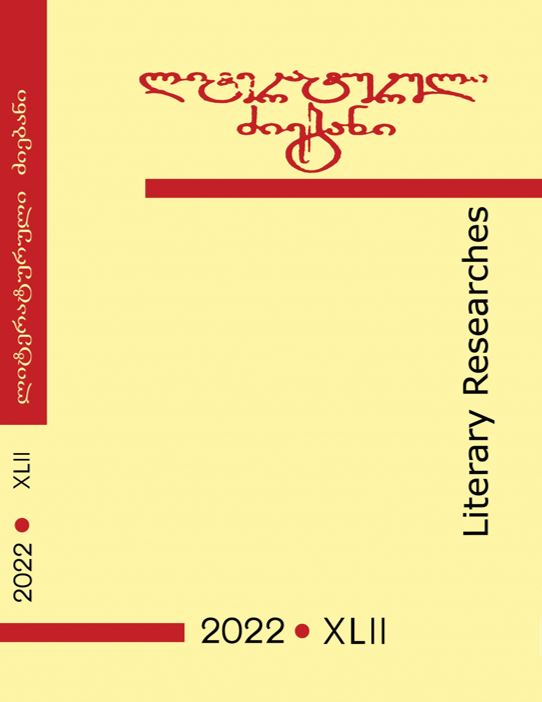Published 2022-04-30
Keywords
- Mari Abramishvili,
- Repressions,
- Soviet Totalitarianism,
- Stalin,
- World War II
How to Cite
Abstract
On March 27, 1945, on her way home from the university where she worked, Mari Abramishvili was arrested, imprisoned and deported on charges of writing patriotic poems and publishing a handwritten magazine (Anathema). She served her sentence in the Vyatka prison camp. She remains the only woman among the repressed Georgian authors. Mari Abamishvili was accused by the state of writing counter-revolutionary poems and of wanting to restore the monarchy in Georgia.
Crushed and broken under the Russian boots, Georgia was the grief and prayer icon of Mari Abramishvili. The brave daughter of the subjugated and dishonored fatherland faced other absurd blames, including that of being the author of a student paper, The Works of Chola Lomtatidze; she was not forgiven for her sincere and deep love for a young man, to whom she dedicated up to sixty poems, because he was the son of an “enemy of the people” repressed in 1937. Such sympathy and love were unacceptable to the socialist motherland. The “Great Soviet Union” was led by the “Great Leader” who was at his highest moment. World War II was underway and the fact that Mari Abramishvili neither praised Stalin nor admired the creed of socialist realism was enough to constitute a crime. Her guilt is therefore compounded: if you were not against the Soviet regime, you would have written at least one poem about the Great Patriotic War.
To save the poet in herself, Mari Abramishvili had a solution: imprisoned, she composed poems orally and recited them aloud. Thus, locked in her cell 31, she created hundreds of poems. With her, Georgian poetry also took the path to Golgotha: Tbilisi-Rostov, Rostov-Moscow, Moscow-Gorki, Gorki-Kirov, Kirov-Vyatka. But, besides these physical hardships, the worst was to perceive that this disaster was due to the betrayal committed by her colleague, close friend and devoted member of the Anathema group.
For the sake of love to Georgia, Mari Abramishvili’s monolithic, fearless and unwavering personality withstood everything, and she did it with equal serenity and courage, without complaints and without rancor towards her motherland. She judged the past with the highest human standards and rather than complaining, she gratefully declared: “I am grateful to you, my motherland, for the sufferings you have inflicted on me, I do not blame you, at least because such sufferings are not the fate of small people!”.
With all her heart, with all her essence, with all her strength and energy, she praised her captive homeland, she wrote for it, she breathed for it and drew from this love the strength of her existence. Mari Abramishvili was a steadfast daughter of her homeland, whose martyred Saint Queen Ketevan is an icon and a symbol of faith and fortitude. Even when she looked into the eyes of death, she grasped the absolute value of life by perceiving the death itself. In those times of harsh physical and physiological hardships, the ideal of a free homeland and unconditional love for her country left no room for any alternate realities. That’s why she declared, “I am this tortured soul, which would have remained the same if it had not been caught within the walls of a prison, because it was born on the soil called Georgia!”.
Having triumphed over time itself, she could not free herself from the grip of two things, which were the essence of her life and existence, her mind, her pain and her love – poetry and the motherland, the motherland and poetry! Apart from these two things, she had no other life, thought, work or dream! What an exceptional life this is!

